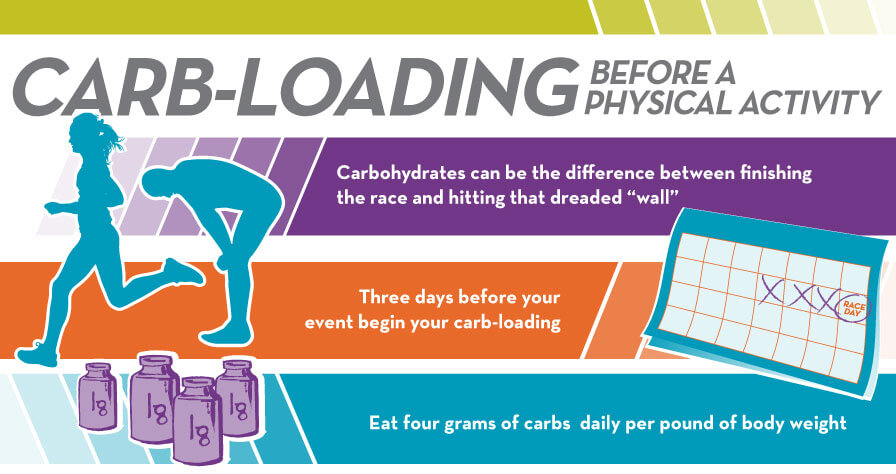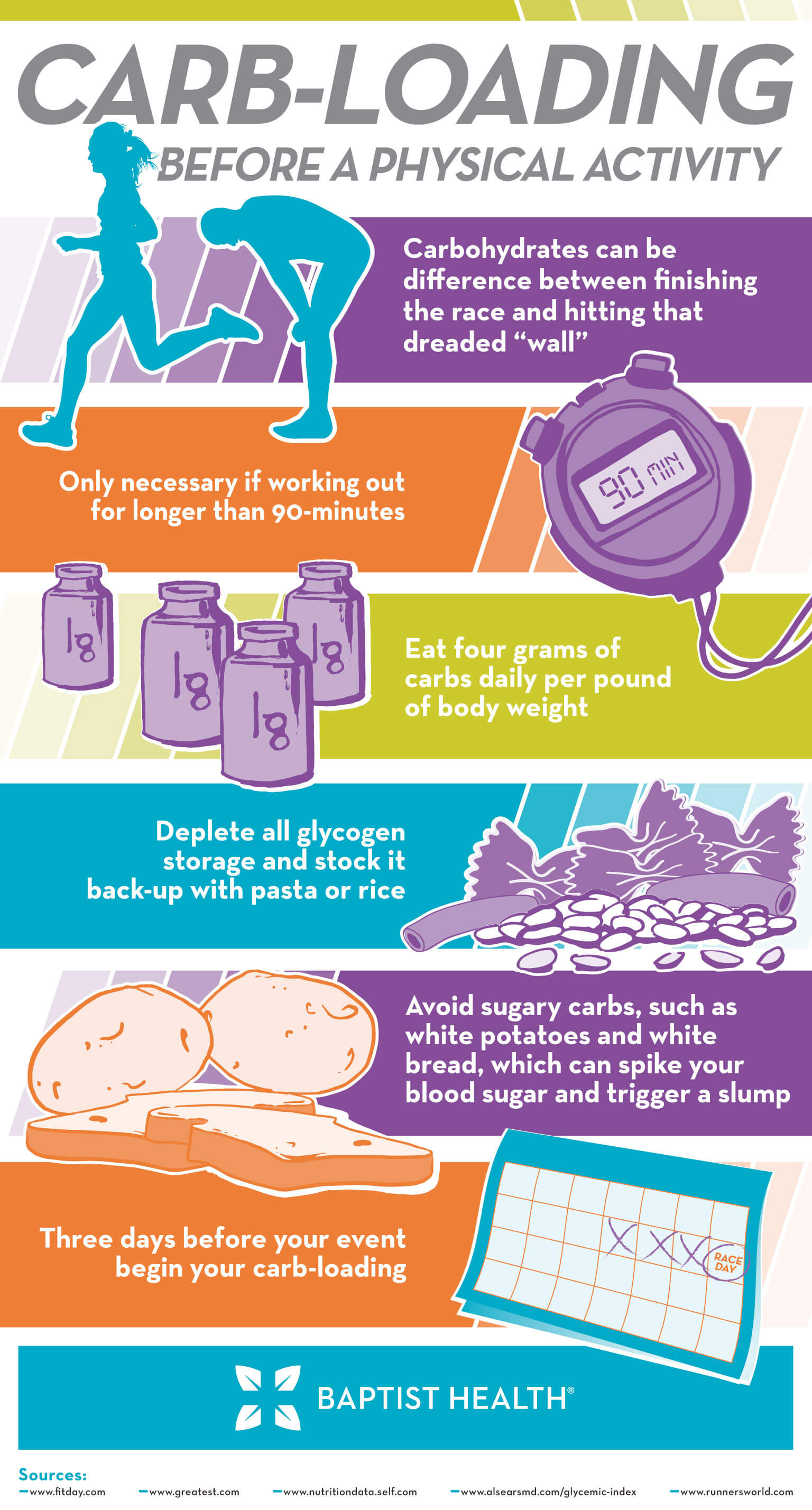Carb-Loading Before A Workout

The types of food we fuel our bodies with are especially important when it comes to the type of physical activity we participate in. For those interested in marathon running or intense athletic competitions, carbohydrates can be the one difference between having the strength to finish the race and hitting that dreaded “wall” half-way through.
Athletes count on carbs to supply them with the energy they need to compete at their greatest ability. Without the proper amount of carbs, your performance will suffer. This is the reason athletes will partake in carb-loading, increasing their carb intake, before their next competition to increase energy levels during the intense workout. This works because carbs replenish the glycogen, stored glucose for energy, in our muscles that we deplete during exercise. Carb-loading is only necessary if you plan on working out for longer than 90-minutes. Most carb-loading is typically associated with marathon racing; however, this can also benefit swimmers, hikers, and even weightlifters.
Carb-loading should not be tested the week of your competition. It’s best to begin increasing your carb intake during training to acclimate your body. Others use a low-carb, high-fat diet throughout the training process. This trains the body to use fat for energy and to not have a dependence on carbs. Whichever diet you choose to implement; carb-loading should always begin after glycogen levels have been depleted through a low-carb diet of at least two days along with intense workouts to keep those levels low. Athletes do this because, after 24-hours of low glycogen levels, glycogen begins to rebuild, allowing the body to reach above-normal capacity in about two days. Taking advantage of this above-normal capacity is the key. Three days before your event begin your carb-loading.
An increase in carbs doesn’t mean overeating. The goal is to increase carb intake compared to that of fats and protein, not to increase calorie intake. Carbs should comprise approximately 60-80% of your daily calories. It’s recommended that endurance athletes eat four grams daily per pound of body weight. For example, a 150 lb. person should consume 600 grams of carbs.
Another important tip to keep in mind while carb-loading is to keep your blood sugar balanced. Eating sugary carbs, such as white potatoes and white bread, can spike your blood sugar triggering a slump. Balance your blood sugar by combining carbs with fats and proteins and consuming carbs that have a low glycemic index (GI). The GI is a rating system from 0-100 for carbs. The higher the GI, the more rapidly it raises blood sugar levels. Balancing low and high GI carbs will benefit you and allow you to carb-load successfully for your athletic competition.
Carb-loading is one way to maximize your athletic ability and to push yourself further than you normally would. This process should be used during training to test how it works. Then before your race or event, deplete all glycogen storage and stock it back-up with carbs, such as pasta, rice, potatoes, and bananas. Remember to not increase caloric intake while increasing your carbs, as this could sabotage your performance and cause you to gain weight.




